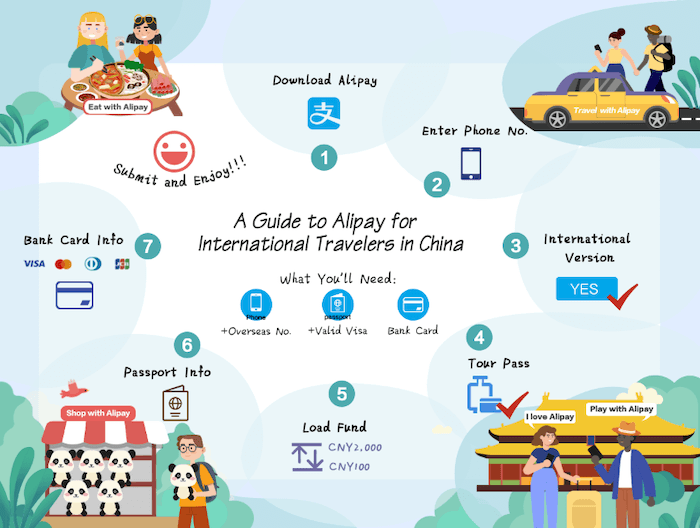
Alipay has just introduced a version of its popular app designed specifically for international travelers to enjoy the ease of paying with their smartphones while visiting mainland China. And, no local mobile number or bank account is required.
Alipay, together with its local e-wallet partners in Asia, already serves more than 1.2 billion users with its widely adopted QR code payment services.
In China, users can also access services such as paying for taxis, hotel room bookings, and movie tickets, directly within the app. However, because access typically requires a local phone number and Chinese bank account, short-term international visitors previously could not use mobile payments in China.

How can foreigners now get an Alipay account?
To begin using the International Version of Alipay, visitors can download Alipay for iOS or Android and register with an overseas mobile phone number to access the “Tour Pass” mini program. Users need to submit proof of a valid Chinese tourist visa and passport.
So how do you top up your Alipay account?
Visitors in China can use their international debit or credit cards to load funds onto a prepaid card provided by the Bank of Shanghai within the “Tour Pass” mini program.
What about the remaining fund when you leave the country?
The minimum top-up for each card is RMB 100, with balance capped at RMB 2,000 ($285). The card is valid for 90 days, after which any remaining funds will be refunded automatically.
What can you use Alipay to pay for?
International travelers will be able to pay for shopping, dining, movie and attraction tickets, taxis and more when traveling in China.
According to a week-long informal poll conducted by Alipay on Twitter, about 220 out of 1240 respondents (18%) felt that the biggest annoyance when visiting China was not being able to pay with their mobile phones as the locals do.
More visitors are arriving in China every year as the country eases visa requirements to boost tourism.
In 2018, China received 30.5 million international visitors from overseas, an increase of 4.7 percent from the year before, according to government data. These tourists are also spending more, with expenditure on hotels, shopping, and food rising 5.1% to a total of US$73.1 billion last year.
China’s post-90s start personal finance management 10 years earlier than their parents